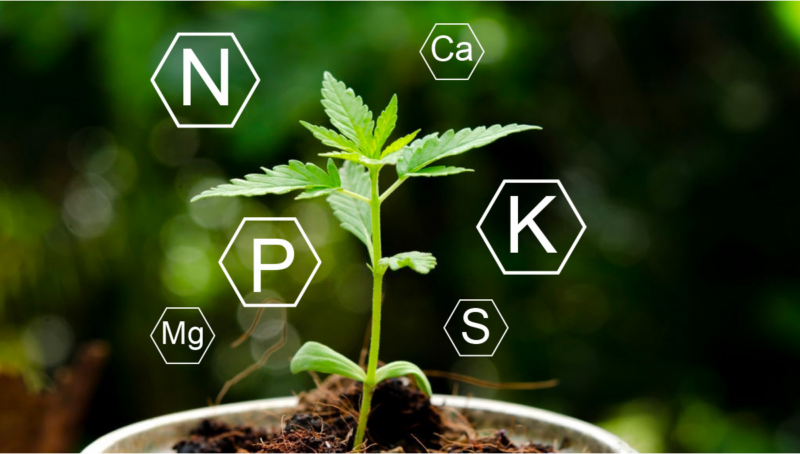Plant Growth Regulators (PGRs) are synthetic hormones that control a plant’s structure and growth rate such as the size of the plant, the shape of roots, stems, and leaves, and how fast flowering starts. Each action has an opposite and equal reaction. PGRs sound like a great thing for plants, and they can be if you’re mass-producing and want bulk over quality.
Ethical practices should be inherent when discussing plant medicine. We deal with cannabis for human consumption, and PGRs in this context are toxic. It is for this reason that TRUCE cautions the community, whether purchasing from dispensaries or legacy markets, to be savvy consumers. We must insist that standardization practices, accuracy in testing, and comprehensive labeling of cannabis be part of state programs.
Of course, we are big supporters of self-sufficiency through cultivation rights. Growing your cannabis or supporting companies that grow organically helps lower your risk of exposure to these applications.
Key Takeaways
- Synthetic PGRs pose significant health risks including respiratory issues and long-term lung damage.
- PGRs can degrade the quality of cannabis, affecting aroma, flavor, and THC content.
- PGR-grown cannabis often appears overly dense, dull and lacks the characteristic smell of cannabis.
- Knowing your grower, relying on lab testing and labeling, or growing your own are the best ways to ensure PGR-free cannabis.
- Consumers should insist on clean cultivation practices and support organic, PGR-free cannabis production.
What are Plant Growth Regulators or PGR’s
Plants contain and produce plant hormones, also known as growth regulators, promoting or inhibiting plant growth. Plant hormones occur naturally in plants. Synthetic plant hormones are called Plant Growth Regulators that act on natural plant hormones.
It should be noted that some writers call all plant regulators, whether they are natural or synthesized, PGRs. These plant hormones are, in most cases, growth-promoting or growth-inhibiting, whether natural or synthetic. Some synthetic plant hormones can also act as herbicides.
For our article, PGRs mean synthesized plant hormones. PGRs are used in our food production and can have adverse effects on our health depending on how they are used.
PRGs are also used by some cannabis growers to speed up the growing time, increase yield, and produce heavier buds.
Evidence is mounting showing that PRGs should not be used in consumable plants, including cannabis.
Growing cannabis with PRGs can shorten the growth cycle for quicker harvests or lengthen the flowering phase for bigger buds. PRG weed also lacks the aroma, flavor, and effects of non-PRG cannabis.
It is important to know the dangers of these chemicals on the human body. These are the most common chemicals used to affect cannabis growth: Daminozide, Paclobutrazol, Chlormequat Chloride, Daminozide, Paclobutrazol, and Chlormequat Chloride.
These synthesized plant hormones can cause respiratory issues, nausea & vomiting, and skin & eye irritation in the short term and lung damage, fertility problems, and lowered antioxidant & amino acid levels in the brain over the long term.
How to Recognize Cannabis Grown with PRG’s
Look for very dense buds that have a spongy texture that may look over-processed and mmachine-trimmed Typically the buds will be darkish and dull-looking with a brown or orange color.
Synthesized plant hormones inhibit terpene production, so the buds lack taste and aroma. And, the THC content is usually lower than the strain average.
Know Your Product
The only way to know if the product you are buying is synthetic-free is to know the grower, rely on testing and labeling, or grow your product. A quick Google search shows that there are companies in Nevada and Colorado that are certified organic farms and brands to choose from. It’s not unreasonable of Utah patients and caregivers to insist on clean products free of toxic practices.
“By now, most cannabis consumers are aware of the importance of lab testing for molds, pesticides, and heavy metals. These days, many seasoned cannaisseurs (cannabis connoisseur) also insist upon starting with non-GMO seeds, following organic farming practices, curing the flowers slowly, and hand-trimming the buds. But there’s a serious danger that cannabis consumers seldom hear about—PGR weed.”
– International Highlife
Cannabis can be tested for many things including the presence of Plant Growth Regulators. Proper labeling and lab results for the product will help ensure that you are getting synthetic-free cannabis. The ease with which PGRs can be purposely or unsuspectingly used and be part of our product is another reason growing your own should be legal for all patients.
Conclusion
Opting for organic growth practices and supporting transparent testing and labeling are key steps toward safeguarding against the risks associated with synthetic plant growth regulators.

